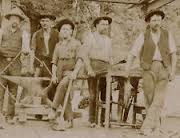
The short answer is “yes and no”, but their motivations are usually very different.
Business owners as distinct from entrepreneurs are nearly always more business-like (read rational) and as a consequence, given the right circumstances, will usually be happy to sell up and move to the Gold Coast to enjoy a well earned retirement.
Unfortunately in too many instances the opportunity to liquidate a long established business or to implement a successful succession plan does not occur so the business owner either remains in harness till he finally drops or poor health makes the decision for him.
Die-hard entrepreneurs on the other hand aren’t primarily motivated by the accumulation of wealth (that’s why they are often perceived as dreamers by ‘normal’ people) although most will admit to a definite preference to “live like a millionaire” if at all possible.
Of course in many instances the length of time involved to successfully establish and build a brand new business from the ground up is measured in decades and during this extended gestation period founders often form a strong emotional attachment to their businesses, whether it be with long term employees, suppliers or assorted business colleagues. It shapes their self image and identity and creates a strong bond which they will not willingly break.
It is well known that even paid employees and managers often define themselves by the positions they hold within a company and this trait is magnified exponentially when it comes to founders and their progeny.
Having started a number of businesses, one established for over 20 years, I can only imagine the wrench involved for a founder deciding to retire from a still flourishing enterprise after 50 years.
Most successful business folk I know have a very good handle on what actually motivates people generally and also have a fairly healthy ego so they are not overly influenced by what other people might think of their actions i.e. they normally do what suits themselves.
You only have to think of Australia’s most successful media mogul, Rupert Murdoch, to realize that he could retire whenever he felt like it but clearly he has no intention. And “good on him” I say.
Another consideration these days is our extended life expectancy. The prospect for retirement at fifty-five or sixty and living (not just existing) for another 25-30 years (for guys, add at least another 5 years for gals) is creating life-style problems we have never confronted as a nation (or world) before.
All the successful business people I know are adamant they want to really enjoy their retirement with their extended families. They are increasingly part of the baby-boomer ‘rock till you drop’ generation and they definitely do not anticipate that their futures will involve being cooped up in a retirement home staring at a TV all day long.
For them the whole idea of dealing with poorer health, increasing medical bills and expensive overseas holidays i.e. maintaining a ‘decent’ lifestyle (they have become accustomed to for many decades) in to the future is becoming an increasingly difficult goal to achieve or plan for.
In these circumstances the prospect of staying on at work (a la the US experience) is becoming a real option. I recall being surprised when attending a Las Vegas convention many years a go to observe how many older people were in fulltime work. And they weren’t business owners, just ordinary people who, I now realize, needed the security of medical insurance.
The challenge, for older people in Australia who unexpectedly become un-employed, is the difficulty in finding another paid position, part or full time. That is, despite a life-time of work experience, with better people skills and being much more reliable (as a group) there is a definite bias against any one over fifty trying to secure a job when younger people apply. With on-going high unemployment rates this situation is unlikely to change in the near future.
The self-employed of course do not face this difficulty since they ultimately chose if they want to stay or go.
CONTRIBUTOR – Drew Martin: Historical construction equipment is the on-going fascination of this Wollongong-based and now retired earthmover. And it was this strange obsession, together with senior links with the industry and the characters within it, that were the catalyst for his professional writing career and the original reason for adopting a pen name. After appearing each month for nearly a decade with his popular and always controversial Ripping Yarns column in the trade magazine The Earthmover & Civil Contractor Drew next tried his hand at children’s books with his REX-3 The Robot Excavator series being published well before Bob the Builder first appeared on bookshelves. In recent years DM has largely turned his attention online and continues to amuse a younger audience with his original way of looking at what most other people consider completely normal life.
Comments
Powered by Facebook Comments